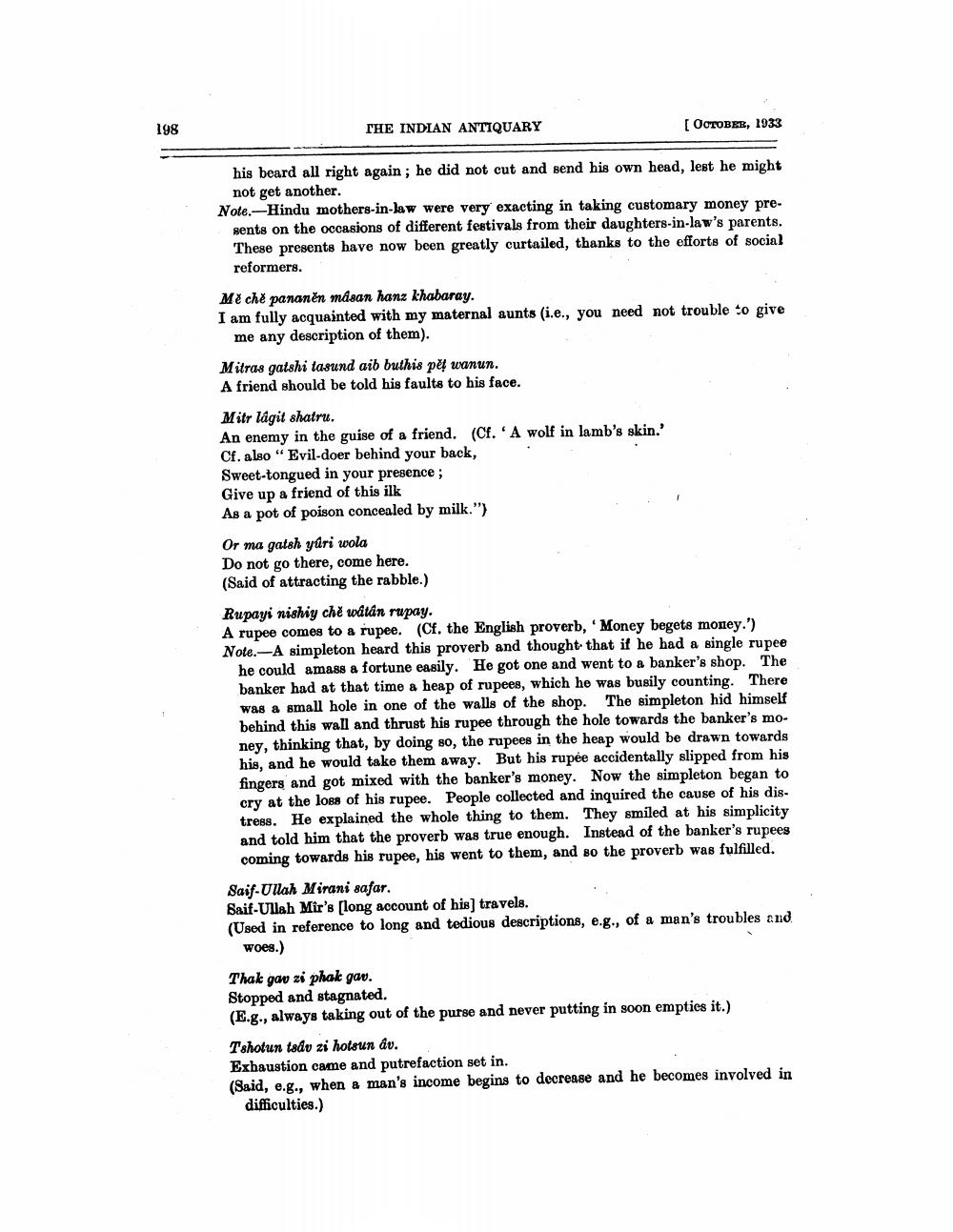________________
198
THE INDIAN ANTIQUARY
[OCTOBER, 1933
his beard all right again; he did not cut and send his own head, lest he might
not get another. Note.-Hindu mothers-in-law were very exacting in taking customary money pre
sents on the occasions of different festivals from their daughters-in-law's parents. These presents have now been greatly curtailed, thanks to the efforts of social reformers.
Me che pananěn masan hanz khabaray. I am fully acquainted with my maternal aunts (i.e., you need not trouble to give
me any description of them).
Mitras gatshi tasund aib buthis pet wanun. A friend should be told his faults to his face.
Mitr lágit shatru. An enemy in the guise of a friend. (Cf.' A wolf in lamb's skin.' Cf. also “Evil-doer behind your back, Sweet-tongued in your presence ; Give up a friend of this ilk As a pot of poison concealed by milk.") Or ma gatsh yuri wola Do not go there, come here. (Said of attracting the rabble.)
Rupayi nishiy chè witán rupay. A rupee comes to a rupee. (Cf. the English proverb, 'Money begets money.') Note.-A simpleton heard this proverb and thought that if he had a single rupee
he could amass a fortune easily. He got one and went to a banker's shop. The banker had at that time a heap of rupees, which he was busily counting. There was a small hole in one of the walls of the shop. The simpleton hid himself behind this wall and thrust his rupee through the hole towards the banker's money, thinking that, by doing so, the rupees in the heap would be drawn towards his, and he would take them away. But his rupee accidentally slipped from his fingers and got mixed with the banker's money. Now the simpleton began to cry at the loss of his rupee. People collected and inquired the cause of his distress. He explained the whole thing to them. They smiled at his simplicity and told him that the proverb was true enough. Instead of the banker's rupees coming towards his rupee, his went to them, and so the proverb was fulfilled.
Saif-Ullah Mirani safar. Baif Ullah Mir's [long account of his] travels. (Used in reference to long and tedious descriptions, e.g., of a man's troubles and
woes.)
Thak gav zi phak gav. Stopped and stagnated. (E.g., always taking out of the purse and never putting in soon empties it.) Tshotun ledu zi holsun du. Exhaustion came and putrefaction set in. (Said, e.g., when a man's income begins to decrease and he becomes involved in
difficulties.)




